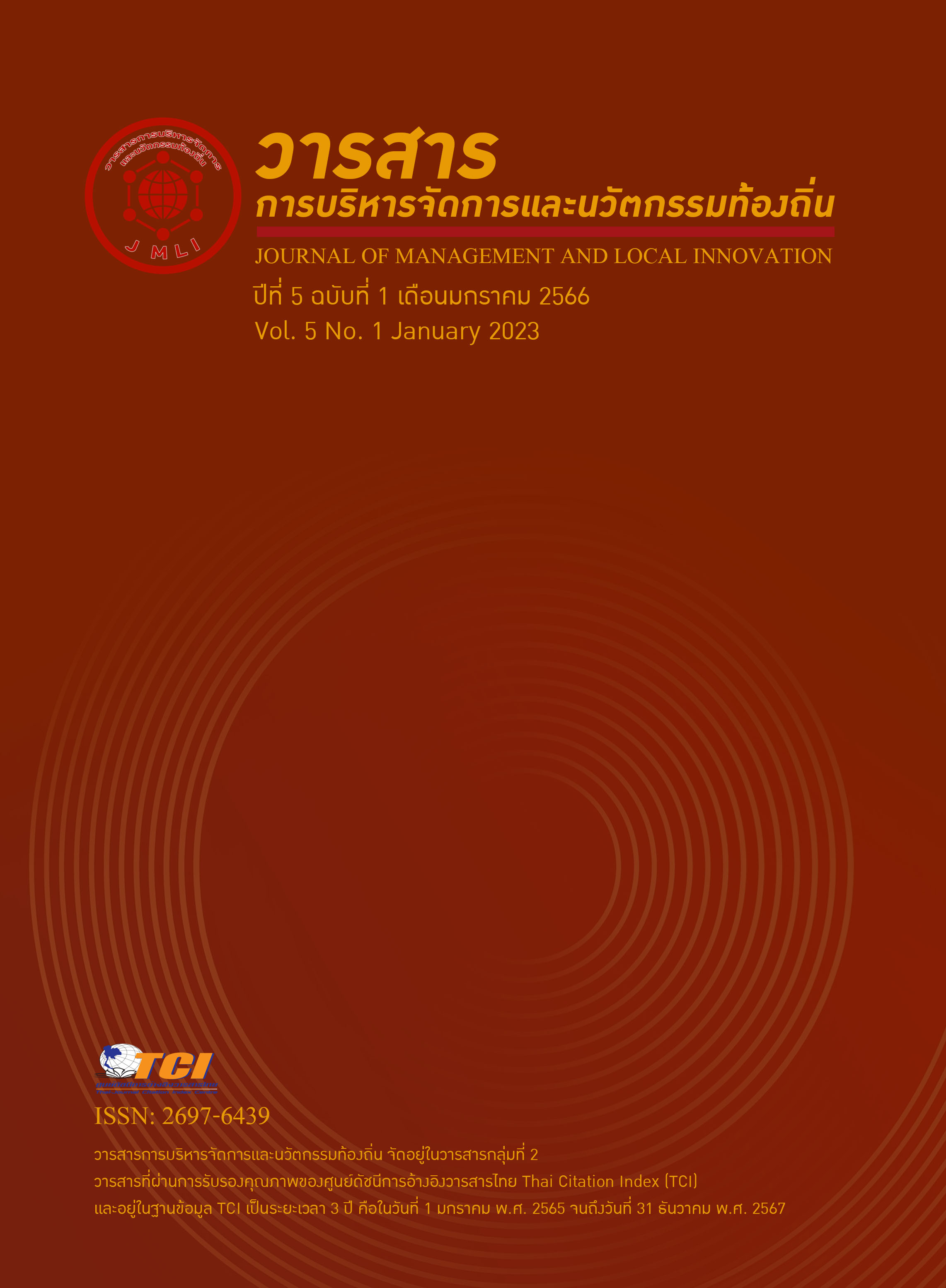Household Accounting based on the Sufficiency Economy Philosophy for the Household Economy Management
Keywords:
Household Accounts, Sufficient EconomyAbstract
The objectives of this research were 1. to investigate the knowledge and attitudes of the people towards the preparation of household accounting according to the Sufficiency Economy Philosophy, 2. to compare the attitudes of previous trainees and those who had never attended training on this topic from any other organization, and 3. to create a model for developing a household accounting system. The sample consisted of 719 people in Sai Yok District, Kanchanaburi Province, using stratified random sampling and subsequently sampling in each sub-district by simple random sampling. The research tool was a questionnaire, then the results were analyzed and processed with a statistical software package for social science research (SPSS).The results revealed that the group who had attended the training needed additional knowledge to be applied in daily life. The level of knowledge on this topic of the previous trainees, 61.49%, was at a high level, while 45.3% of the newcomers was at a moderate level. The attitudes of previous trainees toward sufficiency economy principles were at the highest level on the meaning of sufficiency economy, while the attitudes of the newcomers were also at the highest level on the usefulness of sufficiency economy for their life. The attitudes of previous trainees and newcomers toward household accounting were at the highest level on the application of knowledge for their future savings. The major reasons for the previous trainees' having household accounting were because they wanted to know the income-expense of the families and apply the sufficiency economy principles of His Majesty the King as a guide to lead their everyday life. As for the newcomers, it was found that they had never had household accounting due to the lack of knowledge of the model and how to do it and thought that it was a waste of time. Importantly, Both the previous trainees and the newcomers were interested in attending any future household accounting project at 87% and 71.3% respectively.


